Businesses that prey on authors – especially indie authors – how their model works, incompetence vs. maliciousness, and how to spot the ones that might provide little to no return, or collapse utterly.
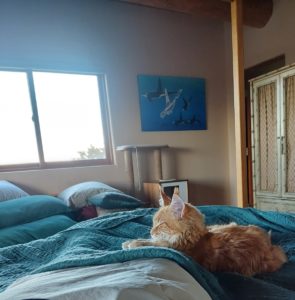
RITA ® Award-Winning Author of Fantasy Romance
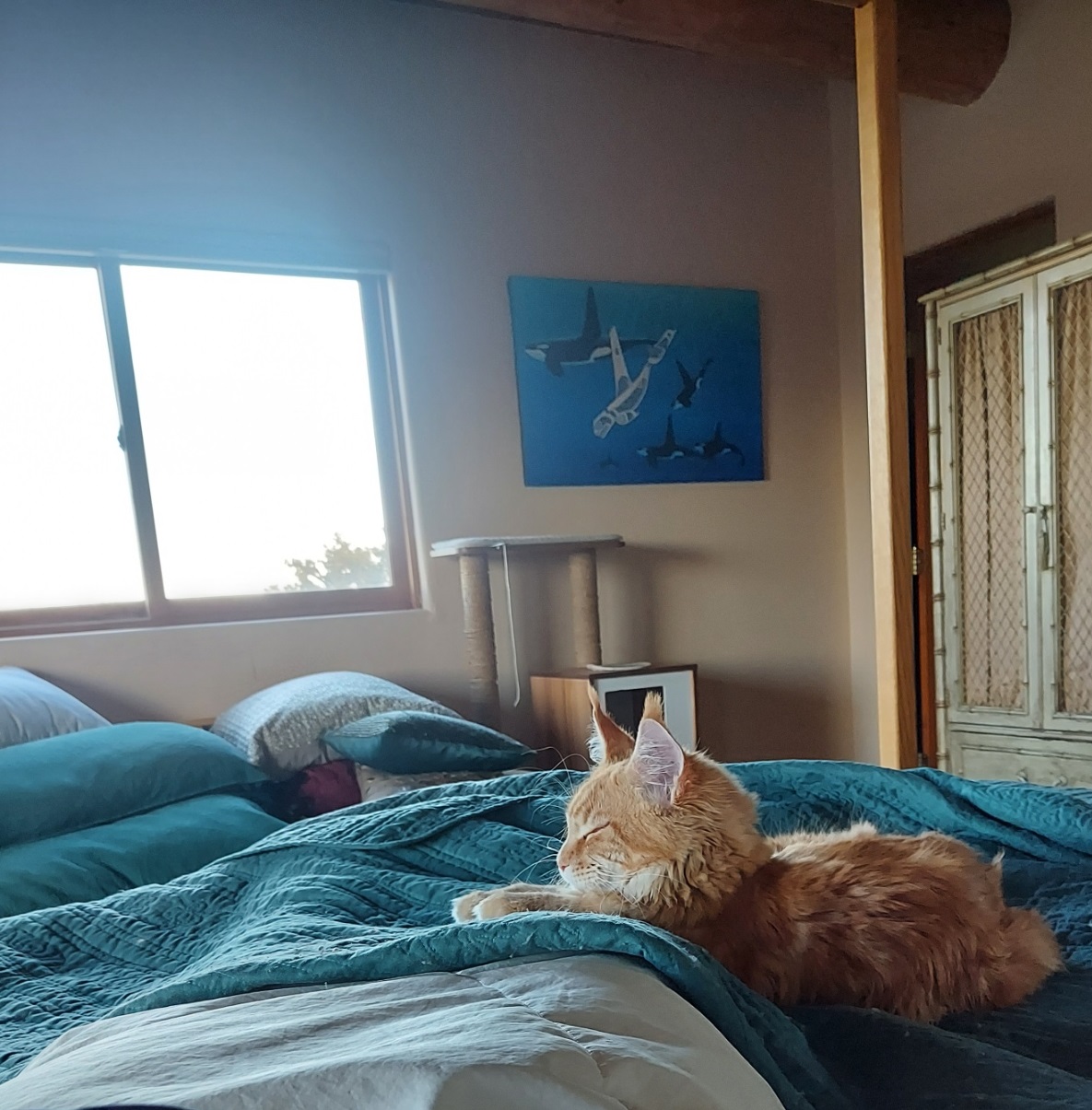
Businesses that prey on authors – especially indie authors – how their model works, incompetence vs. maliciousness, and how to spot the ones that might provide little to no return, or collapse utterly.

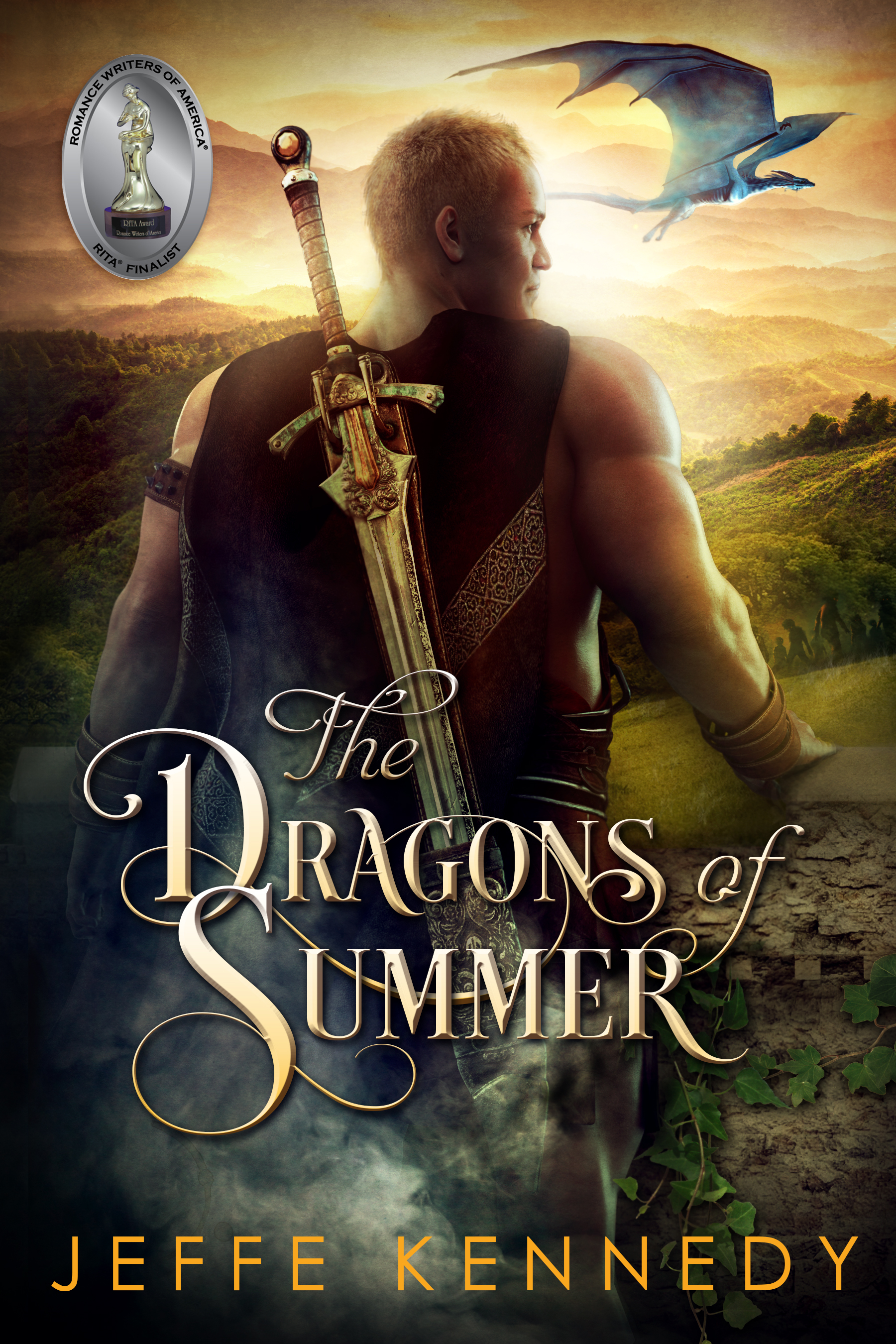
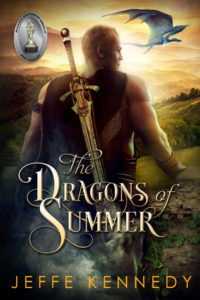
THE DRAGONS OF SUMMER, my standalone and RITA(R) Award Novella Finalist from the SEASONS OF SORCERY anthology is now up at all the retailers! Including in print, for those collectors among you. You know who you are. Very shortly I’ll have print versions available in my website store that you can have me sign, personalize, if you like, and mail to you.
Last night I had occasion to scroll back through the ancient history on my Kindle. I was looking for a story with a particular scene that’s stuck in my mind, from a book I was given to read and possibly blurb back in early 2016. (See? Totally ancient history so far as my Kindle library – sorted by Most Recent – is concerned.) I remembered the scene, but not the author or title of the book. So I scrolled back and back, through the 608 digital books I’ve acquired (I know I have nothing on some of you) since March 5 of 2009 when I bought Jeaniene Frost’s HALFWAY TO THE GRAVE and kicked off my eReader life.
Which means I just passed my ten-year anniversary. Go figure!
Anyway, I went back considerably farther than 2016, because I couldn’t find the book and wasn’t at sure when I’d read it. And something struck me as I did: So many of the authors there had disappeared from my awareness. Some of them have disappeared altogether, perhaps into new pen names or other professions. This somewhat jolting discovery came at the same time that a lot of authors are talking about having to take day jobs again, because they’re no longer making the money they once were from writing. There’s lots of theories about this, but this is what I think is happening.
On April 19, 2011 – isn’t it weird how these thoughts come to me around the same time of year? Could be doing taxes – I wrote a blog post called Silver and Gold and Cautionary Tales. It’s all about the gold rush in self-publishing and thinking long term.
Back then, a lot of people were talking about all the newbies flocking to self-publishing with starry eyes and dreams of getting rich quick. And some did.
Many of us predicted – myself included – that the ones who didn’t get rich quick would soon bail and move on to the next gold rush. And some did.
What I didn’t forsee is what I think is happening now:
I think we’ll still see authors moving on to the next gold rush. The money stopped being easy a while ago, so those who don’t care about WRITING at its core will find an easier way to make a living. Readers have become more discerning, following particular authors and no longer wasting their time on free and cheap reads that simply aren’t worth their time, no matter the price. We have a huge and avid reading community, which is a wonderful solace to so many of us.
Here I am, for example, ten years with my Kindle (third one) and reading strong.
I’m curious – what was your first eReader purchase? (On Amazon you can go to your account, your content and devices, then sort by Acquired Date: Oldest-Newest.
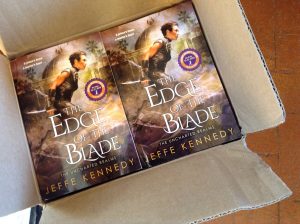 The carrier pigeons delivered my ARCs (Advance Reader Copies) of THE EDGE OF THE BLADE yesterday!! Email my assistant, Carien at Carien at home dot nl (suck up spaces, replace words with punctuation symbols – you know the drill), if you’d like to get on the list. We just need you to review it somewhere, please and thank you, or my publisher yells at me. (Okay, they don’t yell at me, but they sigh at me and make these little squinchy faces.) You can also find preorder links HERE, if you want to skip the (implicit) obligation and go straight for the gold.
The carrier pigeons delivered my ARCs (Advance Reader Copies) of THE EDGE OF THE BLADE yesterday!! Email my assistant, Carien at Carien at home dot nl (suck up spaces, replace words with punctuation symbols – you know the drill), if you’d like to get on the list. We just need you to review it somewhere, please and thank you, or my publisher yells at me. (Okay, they don’t yell at me, but they sigh at me and make these little squinchy faces.) You can also find preorder links HERE, if you want to skip the (implicit) obligation and go straight for the gold.
Either way… EEEEE!! Can’t wait for you all to read Jepp’s book!
The other day someone on one of my author loops asked about a workshop she saw advertised that promised to teach participants how to increase their numbers of newsletter subscribers. It was being taught by a guy who also teaches workshops (and sells books) on how to maximize Facebook ads. This author mentioned that the workshop cost $600 and she wondered if it was worth it.
She noted a few things about this guy, which I’m going to list for you here:
Here are some things to think about:
All of this comes down to that there a lot of people out there selling shovels to miners.
This is what happens in a gold rush. Yes, there is gold out there, and a lot of miners are finding gold in them thar hills. There is nothing wrong with being a miner and going for the gold. Nor is there anything wrong with the shovel salesmen. Miners need shovels.
But the head of my agency (Fuse Literary), Laurie McLean, said something very smart. She said, “There’s a reason the streets of San Francisco are named after the shovel salesmen, not the miners.”
By this she’s referring to the fact that San Francisco grew up as a supply camp for the gold rush miners. Much like Denver, the city was first a supply camp, then grew up as more and more people made their livings around the ones digging the gold out of the ground.
The metaphor here should be clear: writers are the primary sources, digging words out of the mines to make stories. The people who sell us the shovels to do this – from software, to agents, to editors, to Amazon, to marketers, and so forth – they all depend on us for their living. We need them, sure – but they need us more. Without us, they have no one to sell their shovels to, no primary source of income.
History, however, remembers who?
The streets of San Francisco are named after the shovel salesmen, not the miners.
That tells you who makes most of the money, keeps it, and uses it to become wealthy.
All this is by way of saying, be aware that these people are out there. I’m not saying don’t buy shovels – we need shovels! – but I am saying, be wary of the person wanting to sell you the Super Duper Extra-Durable Supramatic Shovel. Especially if that person is telling you that the Super Duper Extra-Durable Supramatic Shovel is key and all miners agree you have to have one.
Especially if that person used to be a miner and is now making their living selling Super Duper Extra-Durable Supramatic Shovels.
 I’ve been thinking about the Gold Rush lately. And Baby Doe Tabor.
I’ve been thinking about the Gold Rush lately. And Baby Doe Tabor.
I grew up in Denver, so this is a natural metaphor for me. We spent a fair amount of time in school studying Colorado history, the modern piece of which pivots around the arrival of all the people chasing gold and silver in them thar hills.
One of my favorite stories was always Baby Doe Tabor. Horace Tabor ditched his first wife, the very severe-looking Augusta, for the very beautiful Baby Doe, whose mother would never let her do manual labor, so she could keep her hands pretty and land a genteel husband. They lived a rich, high-spirited life and many opera houses, banks and other edifices bear the Tabor name. One of my favorite bits of the story is how Baby Doe commissioned her dressmaker to dress the nude statues on their property, because the neighbors were offended.
It’s a cautionary tale, too. When the country moved to the gold standard, their silver holdings lost their value. Horace died a poor man and Baby Doe lived out her days in the cabin next to the Matchless Mine, which had once fueled their fabulous fortune.
There’s a decent summary of the story here, if you’re interested in details.
Those are the gold rush stories – the dramatic ascensions, the terrible crashes. Denver grew from a muddy mining supply camp into a major city with diverse industries.
The whole ePublishing thing has put me in mind of that.
There’s this wild scent in the air that there are fortunes to be had. Everyone is scrambling, in their own ways, to stake a claim. Some are panning the streams, some digging their own mines by hand. People are forming groups, new ePubs popping up all over, mining the writers for their talents. Is gold the way to go? Silver?
I’m sure some people will make lots of money – that’s pretty standard for a gold rush. Others will be the colorful tales, the ones who slog away in the hills alone and trudge into town for supplies, not noticing the gold dust on their boots. Others will be like the Tabors, with a glamorous and prolific burst of fortune that fades into nothing. Such is the nature of all cautionary tales.
It’s easy to look at the Tabor’s story and make judgments. If only they’d invested better. If only Horace had listened to his friends’ advice and diversified. If only they’d seen the money wouldn’t flow in forever and made plans accordingly.
Someone asked me for advice the other day and then ignored it. Their prerogative, I suppose, but I won’t claim it didn’t bother me. I worry about what some of my writer friends are signing up for, dazzled by the promise of riches. It’s true that big gains require bigger risks – but that doesn’t mean the risks should be ignored.
Here are my cautions, for what they’re worth:
1. Track record is more important than ever
This feels like an iconoclastic era, and perhaps it is, but anyone can declare themselves an editor, anyone can set up an ePress in their living room, anyone can have a book printed. The only way to predict the future is to examine the past. If there’s no track record, your risk goes up, fast.
2. Anyone can have a book printed (see #1)
Writers want to see their books in print. We grew up holding books, loving books, seeing them stacked around us on the shelves. There’s a legitimacy to print that we long for. But because anyone can have a book printed, and even carried by a legitimate distributor, that does not mean books will get into the stores. Major publishers are struggling with getting books into stores. Major bookstores are collapsing under their own fiscal weight. Print books are doorstops if they’re not getting into readers’ hands. Pretty doorstops, maybe, but nevertheless.
3. Multi-book contracts are not always good for the writer
For years now when people ask me what I want for my birthday or Christmas I’ve been saying “a lucrative, multi-book contract.” We all want it. It’s the brass ring. In this dream, a publisher promises to publish my next three books and gives me a chunk of money up front, theoretically so I can feed myself while I write them. Now there are ePubs offering multi-book contracts, which has that lovely guarantee, but without the advance. So, now you’re committed to the publisher, without money up front, and possibly no track record. (See #1) What happens if your book doesn’t do well? What if the publisher runs into issues – personnel, financial, legal? (Back to track record.) Now your next three books are tied up, possibly for years. There are plenty of cautionary tales on this one. *cough* Dorchester *cough*
4. Easy come, easy go
Okay, this is the one none of us wants to hear, but that fabulous ePub who loves loves loves our baby novel that everyone else says is unmarketable? They could be wrong in that love. We *want* to believe they’re seeing what everyone else missed, but it’s also possible that the new ePub simply doesn’t have the industry experience to see that it’s not marketable. Also, they might not care. More than one start-up has employed the “throw a bunch of stuff at the wall and see what sticks” method of defining what’s profitable and what isn’t. It’s hard to look at this objectively, but bears considering why they want what everyone else turned down. Maybe they’re brilliant visionaries who alone recognize your true genius. Maybe not.
5. Think long term
A writer told me the other day that she would never again publish with a particular ePress because her profits weren’t as good as with another. Sure, this is a legitimate business choice. However, that less profitable ePress has a lot going for it – personnel with established industry track records (I know, I’m harping on this), strong financial and legal backing. I see them as ramping up in a steady, fiscally conservative way that promises much for the long run. Sure, you might not be picking gold nuggets up off the ground, but for a lifelong venture, maybe you don’t need to fill your pockets with gold right now.
As writers, we don’t always like to worry our pretty heads with business. It would be lovely if we didn’t have to. I wonder sometimes, how Baby Doe saw things. Did she try to give Horace business advice or did she while her days away in play and dressing sculptures? Was she bitter that she died poor when she’d once lived so glamorously? I imagine her hands were cracked and gnarled in the end, chopping her own wood, digging through the rocks for silver.
It’s tempting to chase the gold. Without the dream, no one would pack up their lives and head for the hills. Some will strike it rich.
Just remember the cautionary tales.